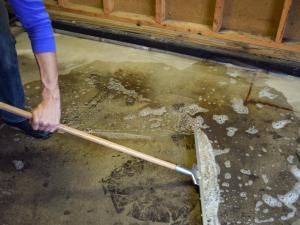Denied, Delayed, Or Underpaid Home Insurance Claim?
MONTGOMERY, TX, USA, June 21, 2021 /EINPresswire.com/ -- Insurance Adjustors Stink In More Ways Than One.
Many insurance companies regard plumbing to be part of routine homeowner maintenance. Maintenance is entirely the property owner’s responsibility. Damage to pipes that develops over time because of lack of maintenance is typically not covered. Pipes in this state could potentially flood an entire house, causing catastrophic damage! For an insurance company to cover a broken pipe, the burst must have occurred suddenly and by accident, and should not have been easily preventable. If an ignored leaking pipe suddenly burst, the insurance company’s agents will look for evidence of a long-term leak and will likely deny your claim. Some insurance policies look at the differences in what is referred to as “resulting damage” versus “initial damage”. If water damage resulting from a broken pipe or appliance is addressed in your insurance policy, then you could be compensated for all or some of the damages…even if those damages did not occur instantly.
When a pipe does burst, homeowners insurance typically covers carpets or rugs, flooring, drywall, and paint in most cases. Any clean-up service may also be included in your coverage. Sadly, the cost of the problem, repairing the busted pipe or replacing the broken appliance is generally not covered.
What Came First? The Foundation Damage Or The Pipe Burst?
In the case of a client of ours out of Montgomery, Texas, the family of three experienced a pipe burst the wall of their garage. The pipe burst leaked sewage onto the garage floor and the resulting odors penetrated the house for a year before the case was resolved. Because the insurance claim was underpaid, the homeowner had little choice but to clean up the mess himself which ultimately lead to him getting E.coli and requiring urgent medical attention.
Along with the damage to the garage and living with the sewage smell inside their home for a year, our client lost all personal possessions in the garage when it flooded. Their insurance company sent out an adjuster and an engineer to handle the carrier’s side of the insurance claim and both remarked the damage could be from the foundation moving, citing cosmetic repairs which had been made to the foundation’s corners. Our adjuster determined that the damage was indeed sudden and accidental and covered under the homeowner’s insurance policy. This slight on the insurance company’s end made it possible for us to pursue 8 times the initial payout to our client from the insurance company, allowing our client to make the appropriate repairs and get on with life without the smell of sewage in their home.
What Can You Do To Prevent Your Water Damage Claim From Being Denied?
Make sure you have any repairs to your home well documented. Keep any receipts from any professional services that may have worked on your pipes or home. These records can make or break a denied, delayed, or underpaid insurance claim. Replace pipes that have outlived their structural integrity. Inspectors can find tell-tale evidence of a slow leak and can deny your insurance claim accordingly. Know where the shutoff valve for your home is at in case you need to turn off the water quickly. Make your best effort to prevent your pipes from freezing. Wrap pipes, leave them to drip when appropriate, heat the home, and so on.
Filing A Claim Tips.
Keep proof that you paid the deductible for your claim. State law allows insurance companies to ask for verification, like a receipt or check stub, that you paid for repairs in the amount of your deductible.
Keep your receipts for temporary repairs, but don’t make any permanent repairs until the insurance adjuster authorizes you to do so. Failure to do so may complicate the payment of your claim.
Look over your policy. Determine what is covered and what is not and any deductibles there may be. Contact your insurance agent if you are uncertain about your coverage.
Document your communication with the insurance company. Record the date, name, and role of each person you speak with and the content of the conversation.
Get a second opinion. Get repair bids from other contractors and compare them with the insurance adjuster’s report before resolving your claim.
Assert your right to the protection you paid for and be prepared to negotiate for a fair settlement of your claim.
Be present during the claim adjusters’ visit so you can point out all of the damage.
Document the damage. Photos and videos can strengthen your claim.
Be patient. Every insurance company handles claims differently.
Should I Hire An Attorney?
If you think your insurance policy covers your loss and your insurer doesn’t, or if you feel the damage you sustained is far more than what your insurance company compensates you for, or if your carrier neglected your claim altogether, then the Texas Insurance Code allows recovery of “actual damages, plus court costs and reasonable attorney’s fees” and if the insurer acted in bad faith you may pursue an award of up to “three times the number of actual damages.”
If you’re unsure of whether or not your situation warrants filing a claim against your homeowner’s insurance company, contact us. Free consultation. No recovery equals no fee.
Chris Flynn
Chad T. Wilson Law Firm
+1 832-415-1432
email us here
Visit us on social media:
Facebook
Twitter
LinkedIn
Legal Disclaimer:
EIN Presswire provides this news content "as is" without warranty of any kind. We do not accept any responsibility or liability for the accuracy, content, images, videos, licenses, completeness, legality, or reliability of the information contained in this article. If you have any complaints or copyright issues related to this article, kindly contact the author above.

